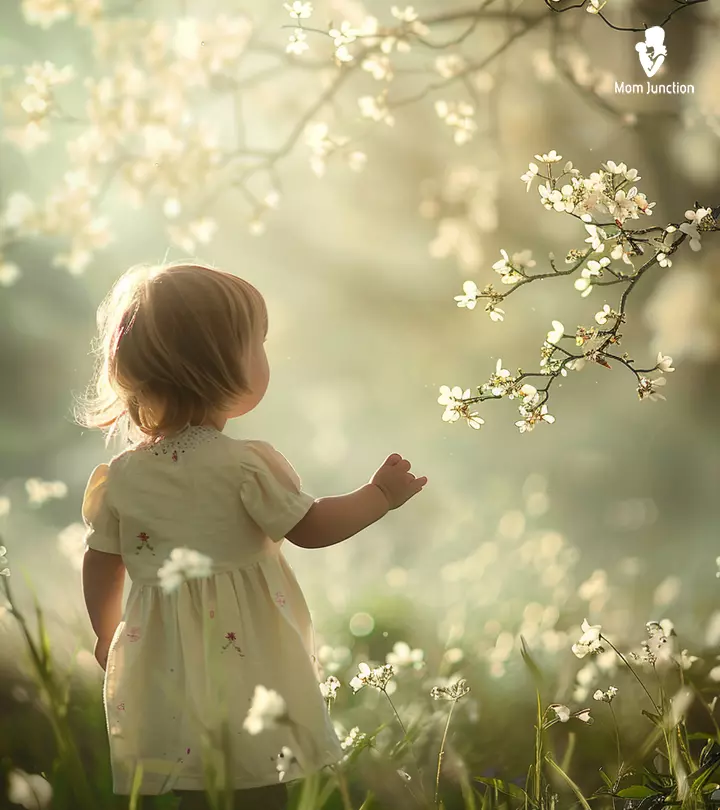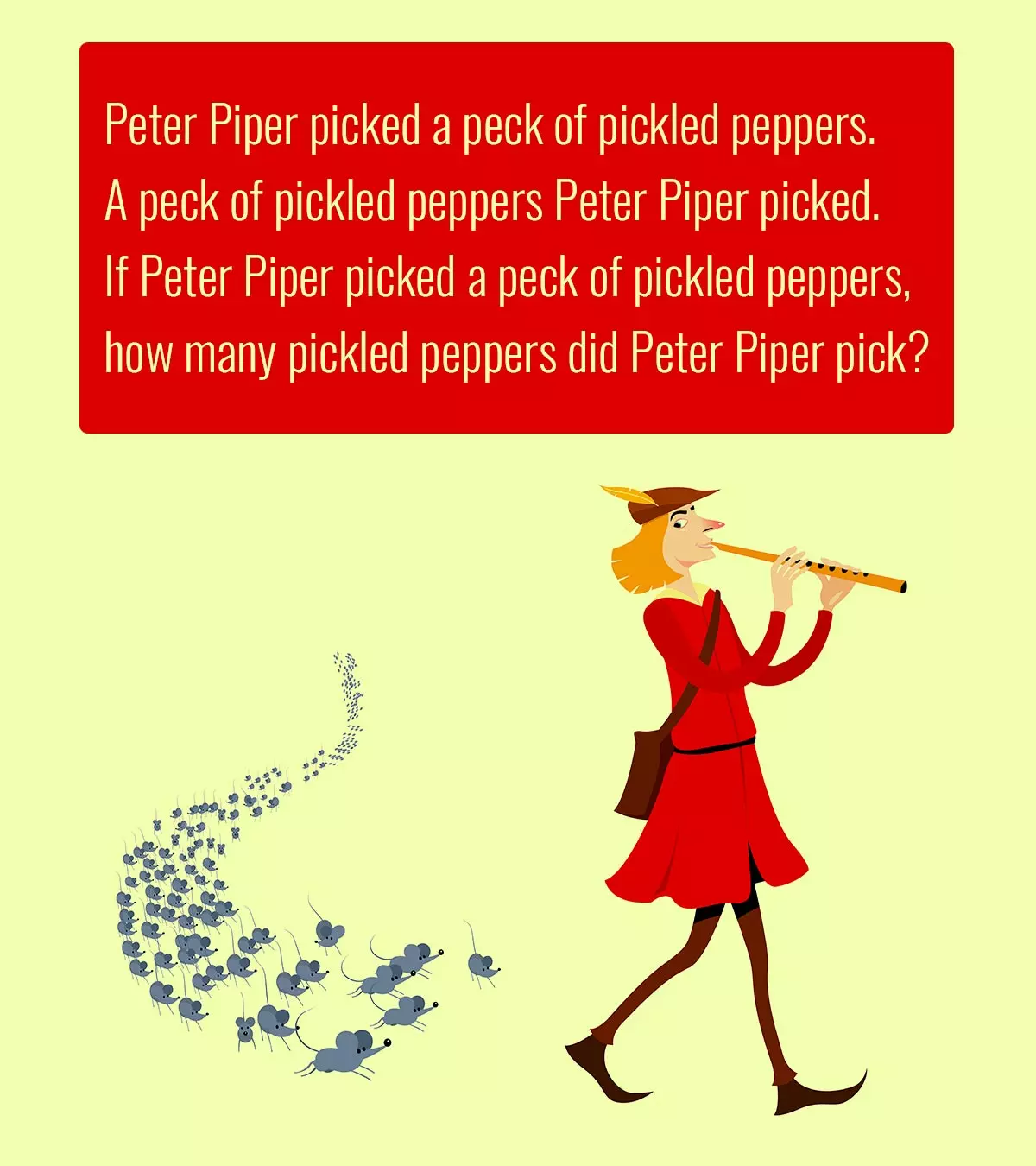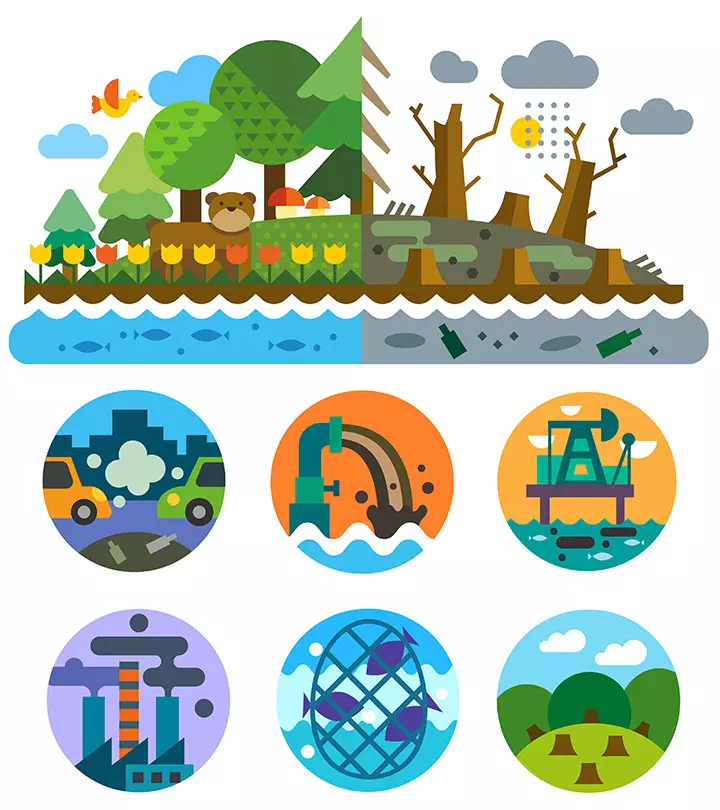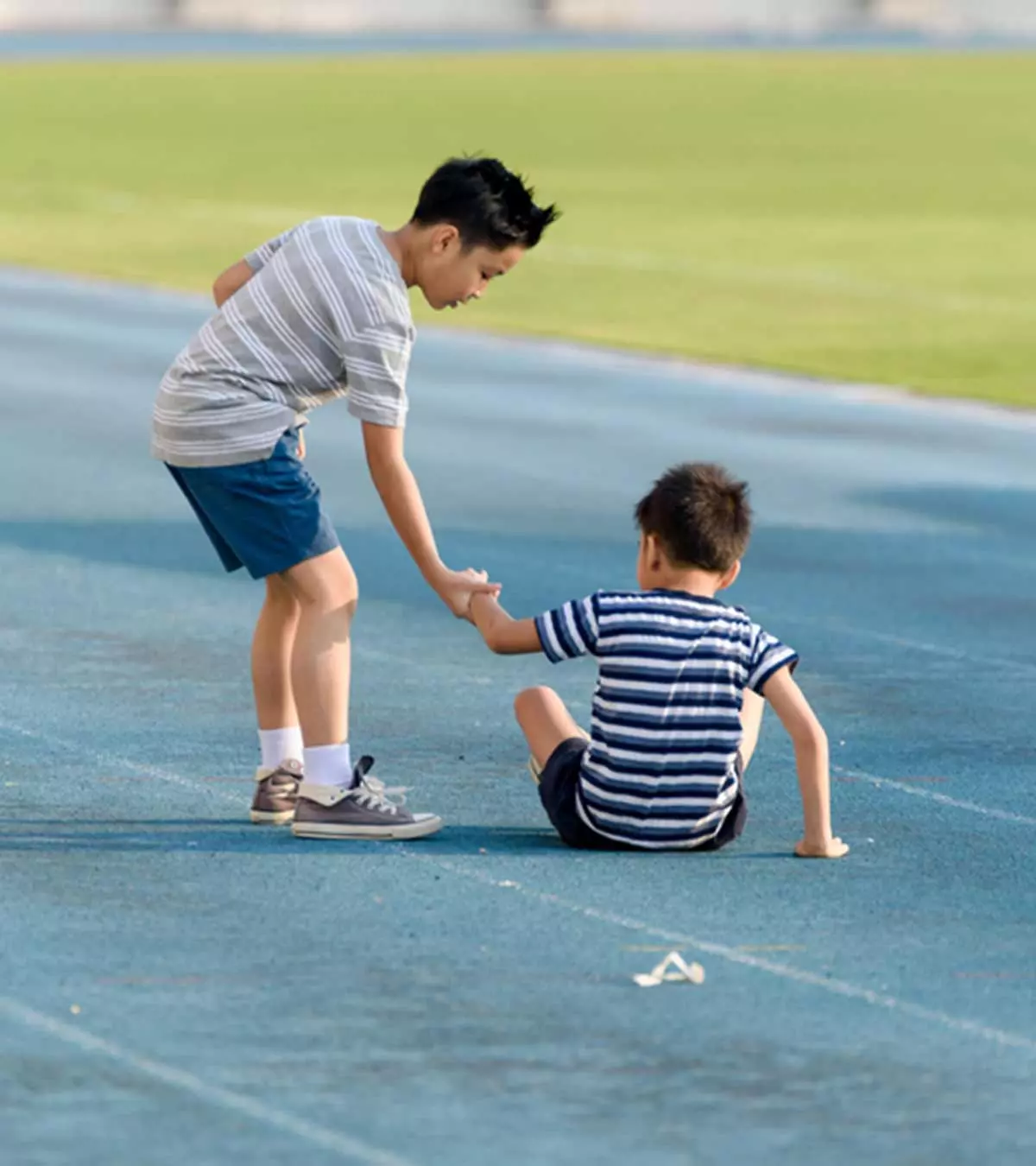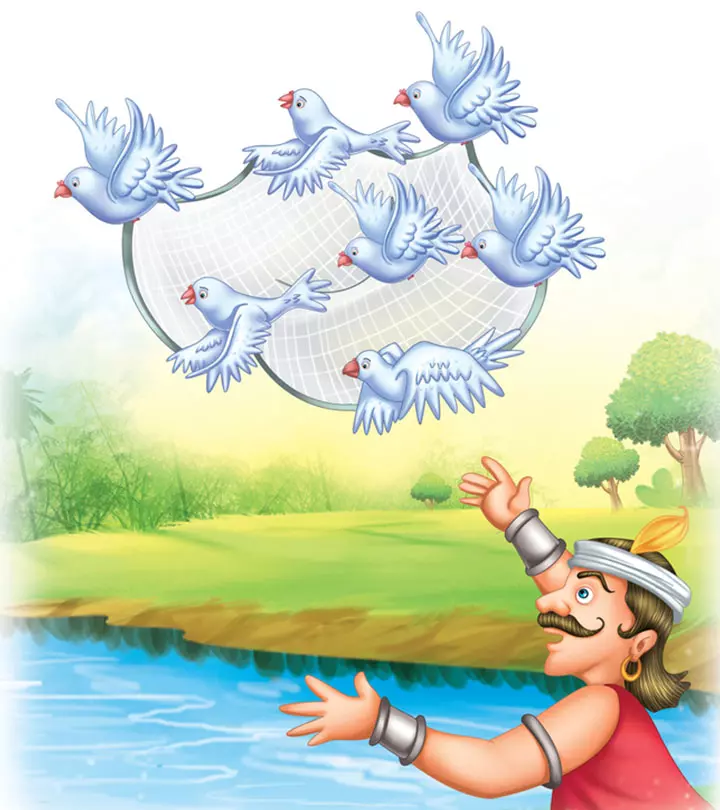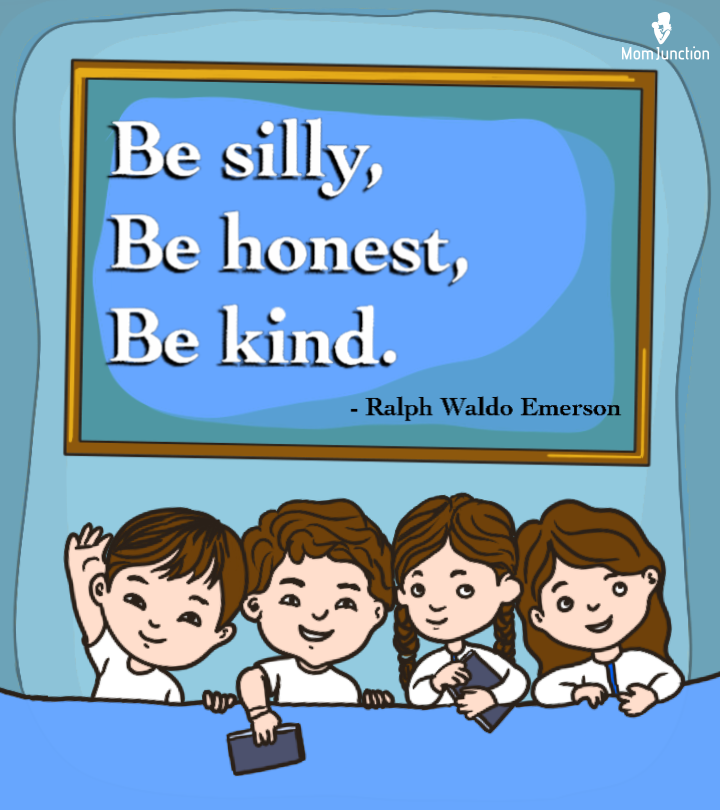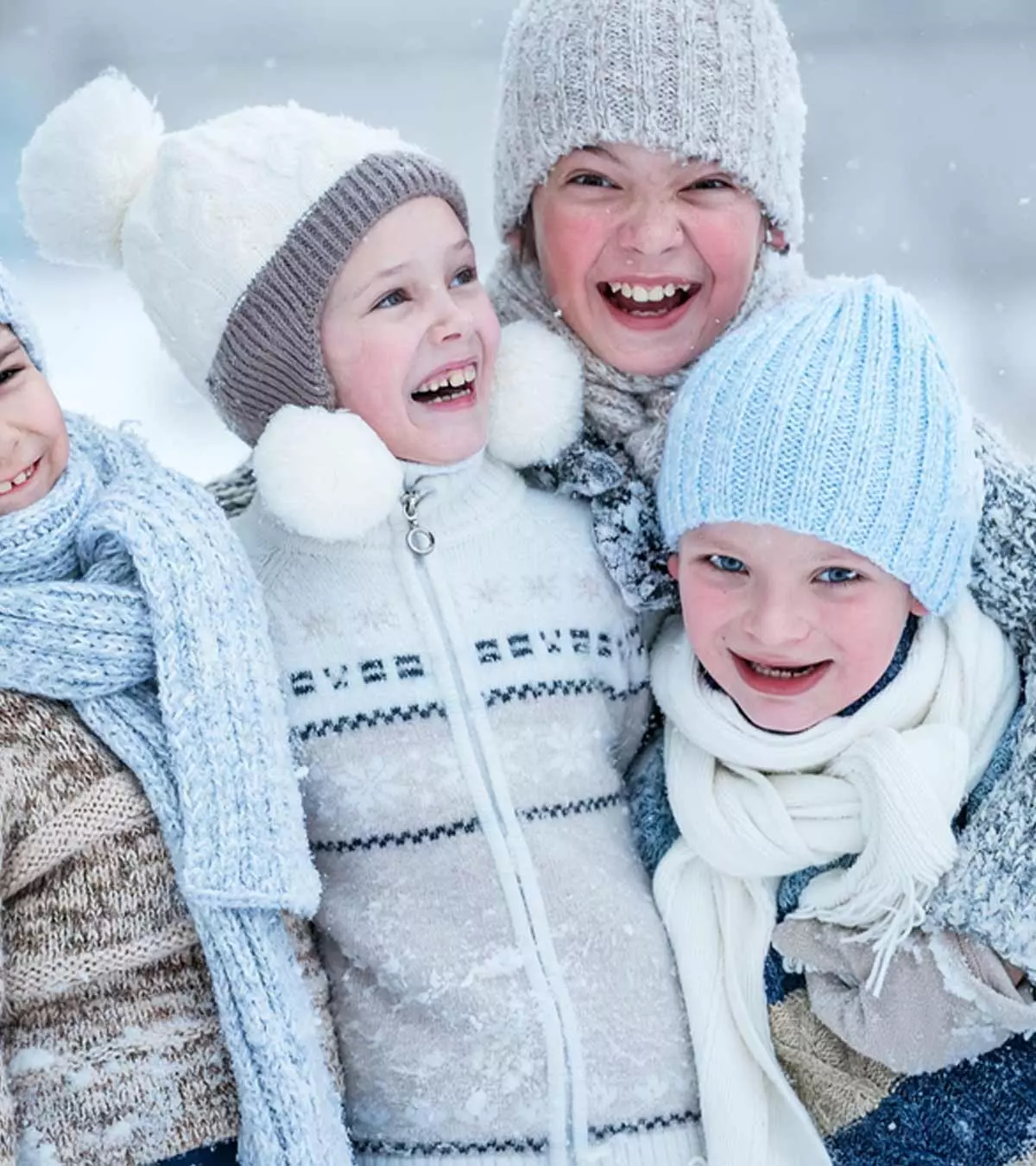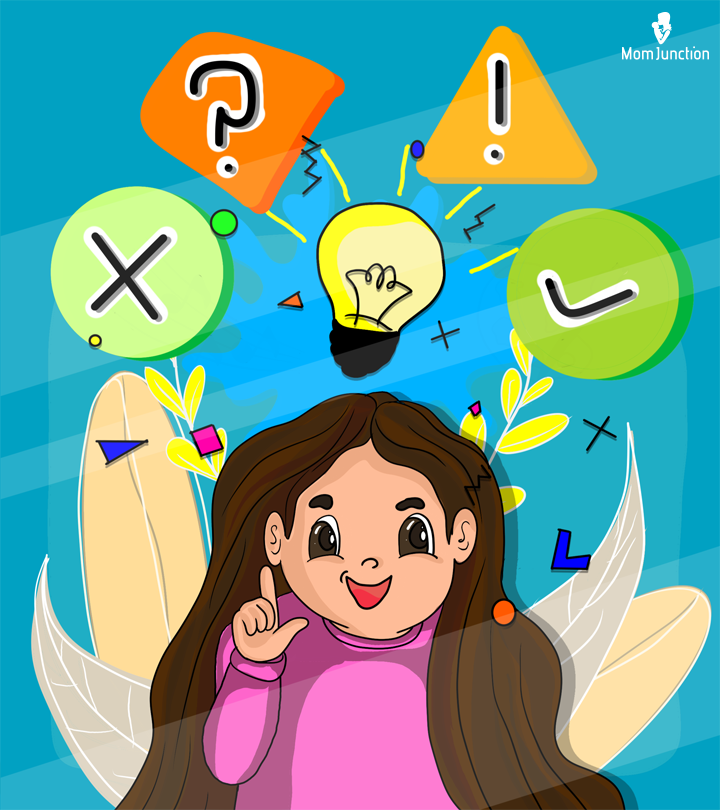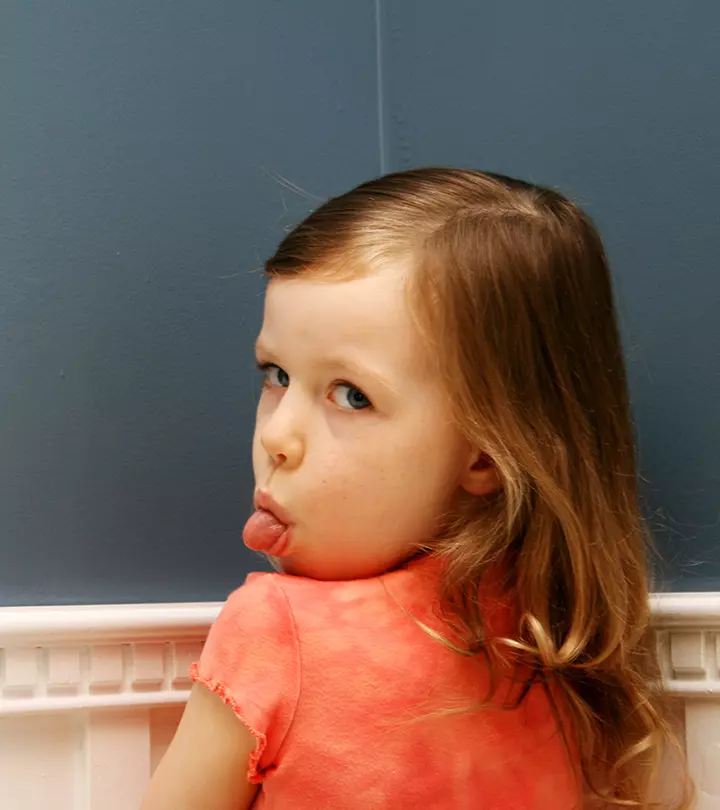
Image: iStock
Disrespect kids’ quotes talk about disrespect towards a person or the lack of basic courtesy and manners. When a child is unruly and disrespectful to others, parents are often held responsible for the situation. As a parent, ensure to teach your child about the consequences of disrespecting their elders or anyone irrespective of age. To imbibe good values and respect, children need to learn the importance of respecting others at an early age. They need to understand that people will treat them the same way if they are rude and disrespectful. So, here are some disrespectful children quotes you may read with your child.
Key Pointers
- When a child is disrespectful, parents are often blamed.
- Quotes can help teach children good values and remind parents to continue fostering respect.
- Select age-appropriate quotes for better understanding.
- Including quotes in lunch notes or placing them around the house can also be effective.
- Talk with your child about their behavior in a non-judgmental way.
Understanding Disrespectful Behavior In Kids
To effectively parent and discipline your children, you must understand why they behave disrespectfully. It will help you modify the approach you take to address and rectify their behavior. The following are the most common reasons why kids act disrespectfully:
- Emotional dysregulation: Children often can’t solve problems or regulate emotions well, especially when faced with rapid and unexplained changes. This often leads to frustration, anger, and irritability, manifesting as yelling, crying, or destroying things (1). When parents see such outbursts and temper tantrums, they interpret it as disrespect.
- Peer pressure and media: Children might display rude behavior to gain attention or impress their friends. In today’s pop culture, rudeness is often portrayed as rebellious and “cool.” Additionally, authority figures, such as teachers, could influence your child, who model impatience or arrogance, leading to similar behavior at home.
- Miscommunication: As children grow up, they develop, express, and test out independent ideas. They want to become independent in their thoughts, values, and actions, which may often clash with yours. You may consider their differing opinions as disrespect. When children believe their parents don’t understand, respect, or care for their feelings, they become rude and unmanageable (2).
- Anger: Children as young as six know when they are being disrespected, bullied, or talked down to, and they retaliate with anger, which you may perceive as bad behavior (3). You may notice your child verbally or physically attacking their sibling or friend. In such cases, they are likely not disrespectful as much as they are reacting to disrespect.
- Mental health issues: A child may be suffering from stress, anxiety, depression, or more severe conditions, like PTSD or personality disorders, which may cause them to lash out. Developmental conditions like ADHD, autism, OCD, and Tourette’s syndrome can also make them unable to regulate their behavior. Moreover, your child’s anger, irritability, and aggressiveness can also be attributed to conditions like Oppositional defiant disorder (ODD), Disruptive mood dysregulation disorder (DMDD), or Conduct disorder (CD), all of which require professional intervention (4).
If you cannot find out why your child is being disrespectful, do not hesitate to seek professional help. When you address the root causes behind disrespect, you can build stronger and healthier bonds and promote respectful behavior within the family.
60+ Disrespectful Quotes For Kids
Disrespectful behavior from kids is a common challenge, but it doesn’t make it any less painful for parents. Reading and sharing quotes about disrespectful children can remind you that you’re not alone in your parenting journey. They can also serve as valuable tools for teaching your children the importance of respect. Here are some insightful quotes on disrespect for you to explore:
- “No disrespect is a world away from respect and admiration” -Susanne Dunlap
- “Ask not the grass to give you green, and later walk all over it” -Anthony Liccione
- “Treat people like people. Beware of pity and patronization because in them, because in them, you can’t see when you are unashamedly looking down on someone.” -Criss Jami
- “When people don’t respect one another, seldom is there honesty.” -Shannon L Alder
- Those who make hostility a daily manner are often left in the lurch at difficult times.” -Michael Bassey Johnson
- “Disrespect of a life is a direct reflection of violating the laws of the kingdom of love.” -Sunday Adelaja
- “Those who disrespect you with their mouth don’t deserve your ear.” -Curtis Tyrone Jones
- “Don’t take things personally, but don’t condone disrespect.” -Izey Victoria Odiase
- “Adults often treat each other as children and children as adults.” -Mokokoma Mokhonoana
- “Most kids would not respect their parents as much as they do, or even at all if they knew how intellectually undemanding is the role they played in their creation.” -Mokokoma Mokhonoana

- “I never tolerate disrespect or betrayal.” -S.R. Crawford
- “Pity, I knew, was just disrespect wrapped in kindness. I had to address it early, or it would grow unwieldy in time.” -Veronica Roth
- “If you threw your shoe at someone’s head, you spread your own stench.” -Angelica Hopes
- “Playing victim to situations you can walk away from is disrespectful to people who face situations where they can’t.” -Dominic Riccitello
- “Tantrums are not bad behavior. Tantrums are an expression of emotion that became too much for the child to bear. No punishment is required. What your child needs is compassion and safe, loving arms to unload in.” -Rebecca Eanes
- “Why were children the only ones who ever got to meltdown?” -Yuko Tsushima
- “Temper tantrums, however fun they may be to throw, rarely solve whatever problem is causing them.” -Lemony Snicket
- “Wars and temper tantrums are the makeshifts of ignorance; regrets are illuminations come too late.” -Joseph Campbell
- “There is nothing worse than having a fit and no one giving you the proper attention for it.” -Christina Henry
- “Staying silent is like slow-growing cancer to the soul and a trait of a true coward. There is nothing intelligent about not standing up for yourself. You may not win every battle. However, everyone will at least know what you stood for- YOU.” -Shannon L. Adler
- “There is nothing more dangerous in this world, in any world than someone calm, clear, and angry.” -Audrey Hart
- “It is when you are angry that you must watch how you talk.” -Chaim Potok
- “It is human to be angry, but childish to be controlled by anger.” -Mokokoma Mokhonoana
- “Strong anger can only make you weaker than you already are.” -Munia Khan
- “No one has ever envied someone for their impatience or the intensity of their anger.” -Mokokoma Mokhonoana
- “I feel as though I can chew up nails and spit out a barbed wire fence.” -Khloe Beutler
- “Choose your battles wisely. After all, life isn’t measured by how many times you stood up to fight. It’s not winning battles that makes you happy, but it’s how many times you turned away and chose to look into a better direction. Life is too short to spend it on warring. Fight only the most, most, most important ones, let the rest go.” -C. Joybell C.
- “Do not allow yourself to be blinded by anger and fear. Everything is only as it is.” -Yuki Urishibara
- “And I just want to tell you, at some point, it doesn’t matter who was right and who was wrong. At some point, being angry is just another bad habit, like smoking, and you keep poisoning yourself with it without thinking about it.” -Jonathan Tropper
- “Be leery of silence. It doesn’t mean you won the argument. Often, people are just busy reloading their guns.” -Shannon L. Alder
- “I have learned that I should be careful with the words I choose to say when I am angry because later, those words always leave a huge wound of regrets in my heart besides hurting the loved ones. Those wounds can’t be healed!” -Nino Varsimashvili
- Bitter people are not interested in what you say, but what you hide.” -Shannon L. Adler
- “Wondering why you took up parenting when your child is impolite and breaks your heart? But then once you feel better, you just love them all over again.” -Unknown

- “A mom’s duty goes beyond the usual housewife chores. A dad’s love for the mum can be so important when their child breaks her heart!” -Unknown
- “Sometimes all the children need is some space after they have been insolent and broken your heart. Just let them know that you are there for them.” -Unknown
- “A mother will know the meaning of unconditional love when their children are disobedient and defiant, and yet they still love them just the same.” -Unknown
- “Instead of scolding your child, let them know calmly why you are upset. That way, you are raising them to argue constructively.” -Unknown
- “When your children are contemptuous, wallow in the sadness as long as you need to, but always let your prayers lead your children on.” -Unknown
- “Children might not acknowledge that they are breaking your heart by being rebellious and ill-mannered, but they know it, and they will feel just as guilty afterward too.” -Unknown
- “I’ve learned- that no matter how you try to protect your children, they will eventually get hurt, and you will hurt in the process.” -Unknown
- “It’s so bizarre that you can feel the physical pain in your chest when your child says something unmannerly that just breaks your heart so.” -Unknown

- “With all the smiles that your children have brought to you, isn’t it amazing that they can bring you so many tears as well?” -Unknown
- “The same person that you care about and love the most is so often the same person that you’ll let hurt you the most.” -Unknown
- “It’s truly painful when you need to recognize and acknowledge the fact that a child has walked out of your life.” -Unknown
- “Children don’t hurt their parents intentionally. But sadness is that they do even after knowing the effect. -Unknown
- “Your children will never know how to appreciate you until they too have become parents on their own.” -Unknown
- “It’s only as a parent that you can have your heartbroken and still love the person with every little bit.” -Unknown
- “Don’t stand for defiance and disrespect from your kids. There’s no excuse for abuse.” -Unknown
- “Keep your head up and your heart strong when your child breaks your heart.” -Unknown
- “Here’s what kids don’t do: Respect you and be grateful. Here’s what they do: Eat their food, be impudent and disdainful, break your heart. Such a tough parenting journey.” -Unknown
- “It’s important to remember that an argument with your child does not mean that they hate you. They are learning and growing with you too.” -Unknown

- “When your children have an insubordinate attitude, we remember how our parents had once told us, “You’ll understand when you have your children one day.” -Unknown
- “One of the toughest things to do as a parent is to go through all the disgraceful arguments that break your hearts and bring yourself to forgive them completely.” -Unknown
- “You might feel like a failure when your child has broken your heart, but know that God is with you through this painful journey. One day, you will get there.” -Unknown
- “How is it that parents have such a wonderful capacity for love? The love from a parent to a child is so strong that there might not be a more powerful force ever.” -Unknown
- “Hurting feelings of parents brings punishment in both worlds.” -Unknown
- “The hard thing is, you try to help them, but still you are the bad one.” -Unknown
- “Ignoring a child’s disrespect is the surest guarantee that it will continue.” -Fred G. Gosman
- “It’s amazing when someone is audacious enough to break your heart, but you still love them with all the little pieces.” -Unknown
- “You can choose to disrespect me, but I will not give you permission to hurt my spirit.” -Lailah Gifty Akita
- “A child who is allowed to be disrespectful to their parents will not have true respect for anyone.” -Billy Graham
- “Don’t anger your parents in order to please other people. Those other people did not spend their lives building you.” -Unknown
Practical Tips For Parents With Disrespectful Children
Respectful children become respected, civil, and well-adjusted adults, whereas children and adolescents with unaddressed disrespectful behavior carry their misbehavior into adulthood (5). Disciplining children is challenging, especially if they misbehave and fail to show respect. Here are a few tips to promote respect for others in your children:
What to do
- Model respectful behavior: Behave respectfully in front of your kids to teach them through actions, not words.
- Implement consequences: Make them face consistent consequences for their disrespectful behavior. Enforce predictable consequences like loss of privileges or time outs to send a clear message.
- Validate their feelings: Actively listen to their perspective, try to empathize with them, and understand their behavior. Then, give them a chance to fix it by asking if they truly meant to sound or act offensive.
- Enforce boundaries: Set clear family rules about acceptable behavior and encourage open communication about feelings and expectations.
- Understand your child: Get to know your child’s interests and friends to better understand the motivations behind their actions and deal with them accordingly.
- Create a safe space: Once in a while, provide your child with a safe, nonjudgmental environment to let them securely express their feelings without interruption. Offer empathy and guidance if they ask for it.
- Mind external influences: Children can often be influenced by their friends or violent and aggressive media to act disrespectfully. Monitor who your child spends time with and what media they consume.
- Equip your child: Teach your child healthy strategies, like taking a break to calm themselves before reacting and using “I” statements to express frustration. Teach them techniques to solve problems instead of becoming aggressive.
What not to do
- Don’t be offended: Do not take your kids’ disrespect personally and don’t be defensive. Stay calm and deal with your kids’ “attitude” with a clear mind. Don’t yell at them.
- Don’t permit disrespect: If your child expresses frustration and says disrespectful things about another person, don’t condone such behavior. You can empathize with them but remind them to express themselves respectfully.
- Don’t force respect: Respect comes from within; you cannot force your child to be respectful toward you. You can, however, tell them that rude behavior is unacceptable, no matter what.
- Don’t ignore the root cause: Check if your child is stressed, frustrated, or worried about something. Consider professional counseling if necessary.
- Don’t use labels: Focus on how you feel about your child’s behavior and how you want to fix it. Don’t make personal remarks about their character.
- Don’t lecture: Have constructive conversations about empathy and respectful behavior because dialogue is better than punishment. One-sidedly admonishing your child will solve nothing.
- Don’t argue or nag: Children do not respond well to anger, arguments, or nagging, especially when they are agitated. Your child will likely switch off and not respond at all. Decide on a time to approach the conversation and then discuss it calmly.
- Don’t disregard developmental cues: Some disrespectful behavior, unless harmful, hateful, or destructive in some way, is simply a part of growing up and transitioning into the adolescent phase. Not all defiance is disrespect; it can be a sign of identity exploration. Pick your battles wisely.
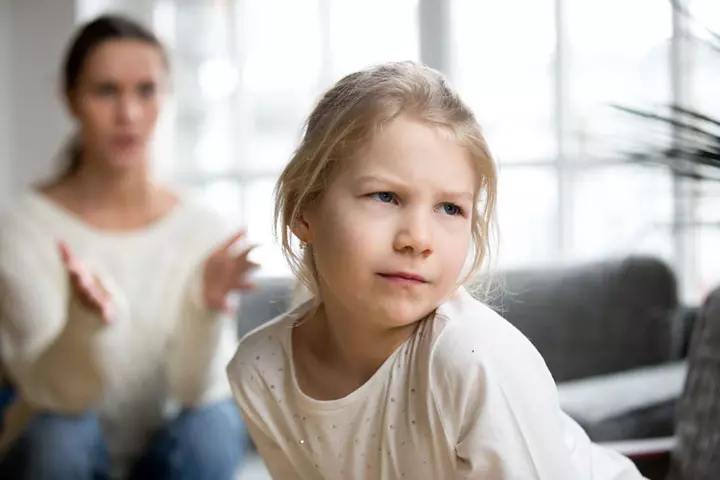
Illustration: Best Disrespectful Kids Quotes And Sayings
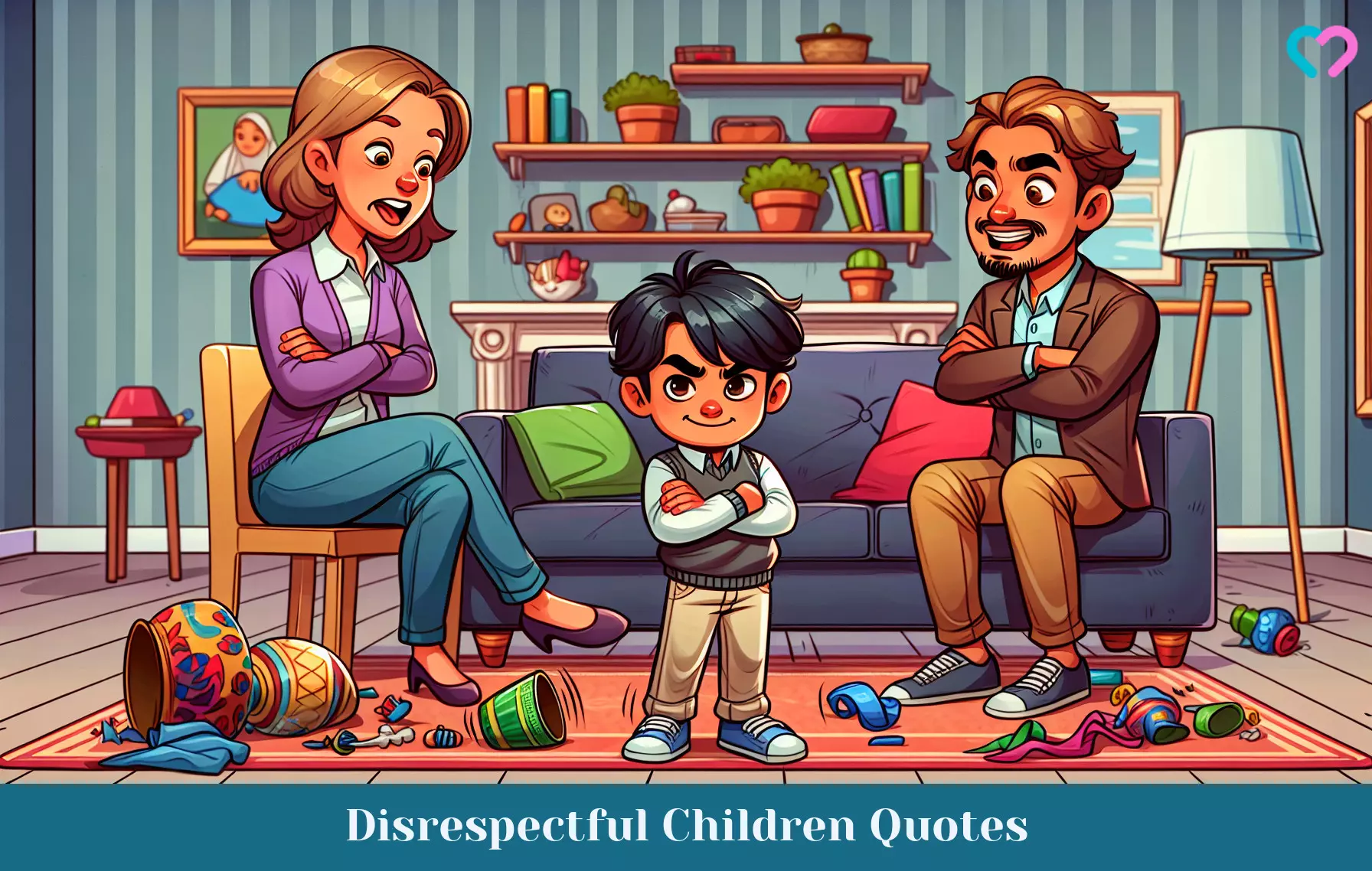
Image: Dall·E/MomJunction Design Team
Frequently Asked Questions
1. What are some effective discipline strategies for dealing with disrespectful children?
Parents can effectively address and correct disrespectful behavior in their children by promoting positive behavior and mutual respect. Understanding the influence of parents on children is crucial, as children often model their behavior after their parents. Some strategies include setting clear consequences, using logical consequences or time-outs, staying emotionally balanced, avoiding harsh punishments, and maintaining consistency.
Christy, a mother of three and a blogger shares the strategies she uses to prevent her children from becoming disrespectful. She says, ”We raise our kids not to address older siblings or cousins by their names. They have to call each other by hierarchical birth order. The elder siblings or cousins are allowed to call the younger siblings’ by their given names but not the other way around. It’s important that my kids are greeted similarly. So when one of my nieces does not address my kids by the proper name, I will teach her to and remind her constantly (i).”
2. How can parents communicate with their children to avoid disrespectful behavior?
Creating a safe and respectful environment for open parent-child communication can help deal with disrespectful behavior. To do this, parents need to let the children know what behavior is expected of them, provide a non-judgemental space, use positive reinforcements or appreciative words to encourage good behavior, and teach them conflict resolution. Making them read respect quotes for kids can also reinforce the value of respect and model positive behavior. Additionally, parents should actively listen to the child’s problems, empathize, and use ‘I’ statements to express feelings when addressing disrespect rather than attacking or blaming the child.
3. How does a child disrespect a parent?
A child may disrespect a parent through actions or behaviors that undermine their authority or disregard their wishes. This may include speaking disrespectfully, ignoring instructions, disobeying rules, or engaging in behaviors against parental values. Disrespect may also manifest in aggression, defiance, or intentionally hurting a parent emotionally or physically.
4. How do I ignore a disrespectful child?
When confronting a disrespectful or disobedient child, ignoring their behavior may not yield positive outcomes. Instead, address the issue by calmly yet assertively setting boundaries and expectations for respectful behaviors. Engage in open communication to understand the underlying reasons behind their disrespectful behaviors and work together to find an effective solution.
Disrespectful nature impacts a child’s overall image and personality. Being malicious and impertinent endears them to no one. Thus, disrespecting parents and elders shows the child’s ungratefulness and ill manners. These traits tend to last for a lifetime, and such people have difficulty maintaining healthy relationships. Therefore, as a parent, you should ensure the child picks up good qualities and is always respectful to others. Learning how to deal with disrespectful child behaviors effectively can help address these issues early on and guide them toward better social interactions. Children who are respectful of others will flourish socially as well.
Infographic: Quotes For Disrespectful Kids
Children may sometimes be naggy and throw a fit. It is a typical and expected behavior as long as it does not harm them or others. But there is a difference between being disrespectful and throwing a tantrum. If it is the former, these quotes can be a unique way to make them understand their behavior and bring a change with the power of words.
Some thing wrong with infographic shortcode. please verify shortcode syntax
Learn how to handle a rude and disrespectful child with this helpful video. Get tips on how to respond and set boundaries to help your child understand the appropriate behavior.
Personal Experience: Source
MomJunction articles include first-hand experiences to provide you with better insights through real-life narratives. Here are the sources of personal accounts referenced in this article.
i. Teaching my kids courtesy and respect;https://kidsrsimple.wordpress.com/2014/02/27/teaching-my-kids-courtesy-and-respect/
References
- Outbursts, Irritability & Emotional Dysregulation Resource Center.
https://www.aacap.org/AACAP/Families_and_Youth/Resource_Centers/Emotional_Dysregulation/Home.aspx - Disrespectful behaviour: pre-teens and teenagers.
https://raisingchildren.net.au/pre-teens/behaviour/behaviour-questions-issues/disrespectful-behaviour - Children angered by disrespect like adults, Longwood researchers find.
https://www.longwood.edu/news/2016/children-angered-by-disrespect/ - Anger, Irritability and Aggression in Kids.
https://www.yalemedicine.org/conditions/anger-issues-in-children-and-teens - David W. Shwalb et al.; (2006); Research and Theory on Respect and Disrespect: Catching Up with the Public and Practitioners.
https://citeseerx.ist.psu.edu/document?repid=rep1&type=pdf&doi=40d869e2510199a340d15a6770c825f172bcb1a7
Community Experiences
Join the conversation and become a part of our nurturing community! Share your stories, experiences, and insights to connect with fellow parents.
Read full bio of Dr. Neha Bhave Salankar
Read full bio of Kavita Kankani
Read full bio of Harshita Makvana
Read full bio of Apoorva K






